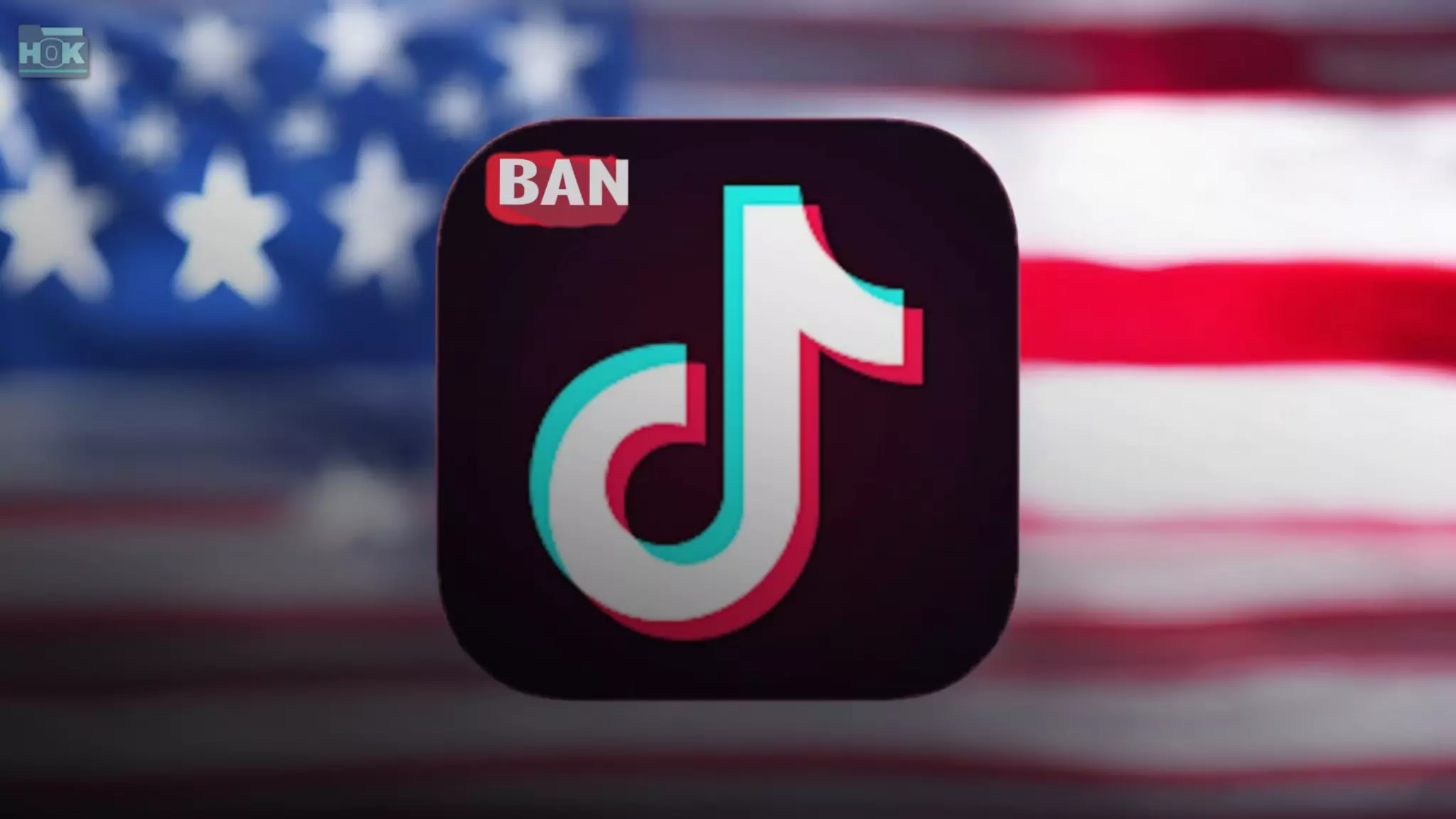Should TikTok be banned in the United States? Did TikTok do something wrong, and if so, was the ban the right decision? Is the ban on TikTok justified or unconstitutional? This article will explore the complexities surrounding the prohibition of TikTok in the United States. We will examine security concerns, the impact on data privacy, and the impact on user freedoms.
TikTok has faced criticism in the United States, with bipartisan support calling for the service to be banned unless its parent company, ByteDance, stops it. ByteDance has said it will never sell TikTok, but if that is true, distributing the app in the United States would be illegal soon.
The bill’s main driver is security concerns about the app, which is believed to be used to spy on and defraud American citizens. The Supreme Court is scheduled to hear the case before January 10, but fans of the app are skeptical that the ban will be lifted or even delayed.

What evidence is there that TikTok poses a national security risk?
While it is true that the Chinese government requires companies to “support, assist, and cooperate with state intelligence agencies,” this is not all that different from the United States. Section 702 is used as a justification for spying on foreign nationals outside the United States, and countries like China have banned services like Google for this reason.
As a result, the TikTok ban could be seen as a response to China’s ban on American services, but the fact that it is being done in the name of national security does not necessarily explain what is happening. The evidence that TikTok poses a national security risk is multifaceted and includes:
- Data collection: TikTok collects a large amount of user data, including search history, location, and contacts. This data can be used to exploit and target individuals.
- Chinese government influence: The Chinese government could force ByteDance to share user data or manipulate the app’s algorithm for political purposes.
- Espionage and disinformation: TikTok can be used to spread propaganda, and disinformation, or influence US politics.
- National security officials: TikTok’s Terms of Service prohibit users from posting content that harms national security. This suggests that the app could be used to collect data from vulnerable individuals.
- Cyberattacks: TikTok’s code can be used to launch cyberattacks or spread malware.
Did TikTok do anything wrong and if so, is the ban the right decision?
The TikTok spying incident involving journalists is a serious breach of trust and a gross violation of privacy. It highlights the potential dangers of uncontrolled data collection and the need for increased transparency and accountability from technology companies.
The Electronic Frontier Foundation (EFF)’s arguments against banning TikTok are based on concerns about data privacy and excessive government influence. They argue that the ban would not effectively address the issues surrounding data collection and could set a dangerous precedent for restricting access to data and platforms.
The EFF’s suggestion that Congress should focus on data privacy legislation is a valid point. Such legislation would set clear rules for the collection, use, and sharing of data, and would allow all companies, regardless of their origin, to operate within a framework that protects user privacy.
The comparison with the US government’s actions with Twitter in Nigeria raises legitimate concerns about the need to uphold the principles of free speech, freedom of expression, and access to information.
Given the security concerns, privacy implications, and broader political issues, it is important to have a careful discussion about banning TikTok. It is also important to take a balanced approach to addressing the specific issues with TikTok while supporting broader issues of data privacy and digital rights.
How does TikTok use JavaScript to track users on embedded pages?
TikTok has faced significant criticism from cybersecurity researchers and research groups, particularly over its data collection practices. One of the concerns was a report by researcher Felix Krauss, who highlighted TikTok’s technical ability to track users’ keystrokes when they click on links in the app by embedding JavaScript into pages.
Krauss only reported on the capability, not evidence of its active use. Other apps such as Instagram, Facebook, and Amazon use similar methods to track user interactions for advertising purposes, and there is no clear evidence to suggest that TikTok is more invasive than these platforms.
TikTok’s terms of service and data collection practices are comparable to those of American companies such as Facebook, Apple, and Google. TikTok collects “coarse” location data via IP address (as opposed to Instagram’s fine-grained location tracking), which is not much different from the practices of other platforms.
TikTok added biometric data to its privacy policy in 2021, which the company says it uses for artificial intelligence, such as facial recognition filters. The addition is in line with US state laws, including Illinois’ BIPA law, which requires companies to disclose their use of biometric data. In contrast, TikTok strictly adheres to the EU’s GDPR, which governs biometric data. The disclosure appears to be a precautionary measure, as Instagram has faced legal issues related to its use of biometric data and was fined $68.5 million for failing to use such data. Here are the main points and some additional points to consider:
Key points
Overly concerned: Initial reports of TikTok’s button-tapping were exaggerated. While the technical capabilities are there, there is no evidence that it is actively being used for widespread tracking.
- Industry-standard practice: The data collection method is common among Meta (Facebook, Instagram), Amazon, and other large tech companies.
- Watch TikTok: TikTok’s surveillance is likely driven by concerns about Chinese ownership and government influence rather than its unique data collection methods.
- Transparency and openness: While TikTok has been criticized for its data collection practices, it is worth noting that many U.S. companies collect sensitive user data.
- Legal compliance: TikTok emphasizes that it complies with relevant data privacy regulations, such as GDPR. However, there are concerns about the potential for data sharing with the Chinese government.
Additional points to consider
- Trust and openness: Building trust with users is crucial. TikTok needs to be more transparent about its data collection practices and how it uses user data.
- Geopolitical factors: The geopolitical tensions between the US and China are significantly influencing the discourse surrounding TikTok.
- Comprehensive data privacy law requirements: The US lacks a unified data privacy law, making it difficult for all companies to set consistent data collection standards.
Is TikTok’s ban justified, or is it an unconstitutional action?
The debate over whether TikTok’s ban is justified and unconstitutional is raging, and the U.S. Supreme Court will hear TikTok’s appeal. The issue is not TikTok’s actions, but the data collection of all companies in the United States and abroad. While TikTok, as a Chinese company, has raised concerns about how it handles user data, American companies engage in similar practices, such as warrantless surveillance under the Patriot Act and the PRISM program.
The EFF argues that the real problem is not TikTok, but rather the lack of data protection. The U.S. government’s spying on journalists highlights that this is a broader problem. Banning TikTok alone will not solve these problems and could lead users to other U.S. platforms with similar data. At its core is the widespread lack of privacy protections in the United States. The debate surrounding the TikTok ban in the United States highlights several important issues:
- Data privacy: A major concern is the widespread data collection practices of tech companies, not just TikTok.
- Government surveillance: The US government’s surveillance programs raise concerns about privacy rights.
- Geopolitical tensions: Geopolitical tensions with China may influence the focus on TikTok.
Conclusion
The debate over banning TikTok highlights the complexity of data privacy in the digital age. Some concerns about TikTok’s data collection and the influence of the Chinese government go beyond a single company. There are challenges to data privacy, including U.S. government surveillance and the extensive data collection practices of many tech companies.
Simply banning TikTok should have comprehensive data privacy laws that protect human rights and freedoms across all platforms. A level playing field should be created for companies to address issues related to the use, disclosure, and disclosure of information by foreign companies under specific laws.


